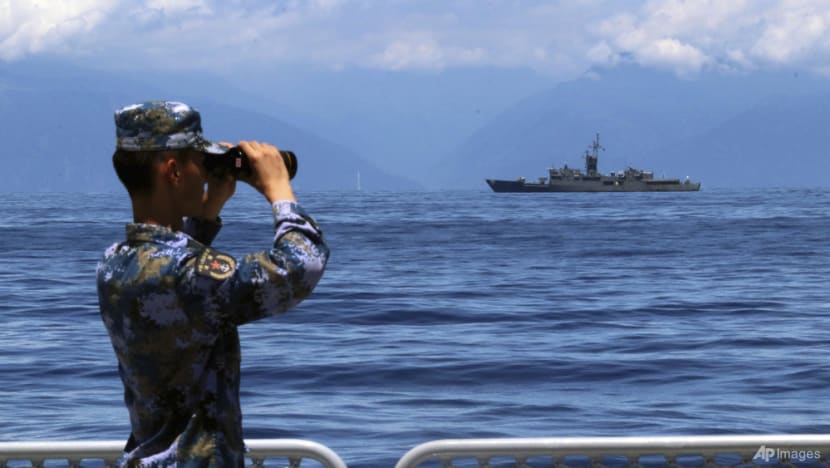Upcoming Taiwanese TV drama envisioning Chinese invasion of island sparks fear, criticism
Its trailer alone has already captured significant public attention, amassing more than 2 million views on YouTube.

This audio is generated by an AI tool.
TAIPEI: A global financial collapse, the activation of Chinese sleeper agents, and panicked residents trying to flee Taiwan.
An upcoming Taiwanese television drama that imagines China invading the self-ruled island has set off a buzz.
The 10-episode series "Zero Day", which is expected to be released in May, confronts a topic that remains too sensitive for many filmmakers.
Its trailer alone has already captured significant public attention, amassing more than 2 million views on YouTube.

SERIES COULD HAMPER CROSS-STRAIT TIES
The show’s creators said it aims to stir important conversations about Taiwan’s national security and vulnerabilities in its digital infrastructure.
Zero Day's showrunner Cheng Hsin Mei told Reuters: “When we planned this drama, we hoped it would prompt people to think about when you are given power or an enormous amount of money but asked to give up your freedom in life. When faced with the temptation, what will the Taiwanese people choose?”
The controversial production has a big budget of US$7 million, largely supported by the ruling Democratic Progressive Party's (DPP) government and Taiwanese businessman Robert Tsao, who is known for his strong anti-China stance.
Meanwhile, opposition parties have raised questions about the drama's true intentions even before it airs on TV.
Analyst Niu Tse-hsun told CNA that the series could hurt cross-strait relations.
“The (pro-China) blue camp would think it's propaganda by the DPP government,” said the professor and chair of the Chinese Culture University's advertising department.
“It would say that the show is designed to instill the DPP's ideology and values that can facilitate the party's governance. At the same time, it paints a negative picture of the other side of the strait. This part could hamper cross-strait exchanges.”
Taiwan residents whom CNA spoke to believe the new drama has ignited broader conversations about national security and the challenges that lie ahead for the island.
“It assumes that if (a war) really happens, what would be done to deal with the situation. I'm of course concerned about whether China would invade Taiwan or not,” said one resident.
“I hope what happens in the TV series doesn't take place in reality.”
Another resident said: “The trailer does make people a little nervous. But making people nervous also serves as a reality check. I think that's the main purpose of the production.”

PRESSURE ON TAIWANESE CELEBRITIES
Zero Day, made against the backdrop of icy cross-strait relations, did not cast any big-name artistes. In fact, the production ran into some difficulties as the creators had trouble finding actors and actresses to play the characters in it.
Many feared they could be blacklisted in China for taking part in the series, according to the creators.
“Some of the members of the crew quit during the shoot due to pressure from China. They had signed documents that restricted their opinions as one of the conditions to enter the Chinese market, therefore a few directors quit because of that,” Ms Cheng said in the Reuters interview.
“It was also quite difficult to recruit actors. I had expected that because actors who have done well in China would be concerned about joining the production.”
This pressure on Taiwanese celebrities is not unheard of, said observers.
They said many would endorse pro-China sentiments - often through social media posts or participation in state-sponsored events - to maintain their careers in the lucrative Chinese market.
Some have remained neutral, avoiding explicit political statements to sidestep controversy.
But even this neutrality can be perceived as tacit support for Taiwanese independence, leading to potential backlash, said analysts.
They added that finding a delicate balance between personal beliefs and professional obligations is a challenge for celebrities.
While many believe the risk of war remains low, observers believe a battle for the mind is intensifying in the digital space.
This “cognitive warfare” has become increasingly crucial, Chinese Culture University’s Prof Niu pointed out.
“This is carried out through subtle and gradual operations aimed at influencing the perceptions of the people on the other side,” he added.
“Currently, this cognitive warfare transcends the traditional concept of propaganda used during World War II, as it combines operations related to social media platforms. The goal is to make people on the other side at least not hate me, if not identify with me or even like me.”


















